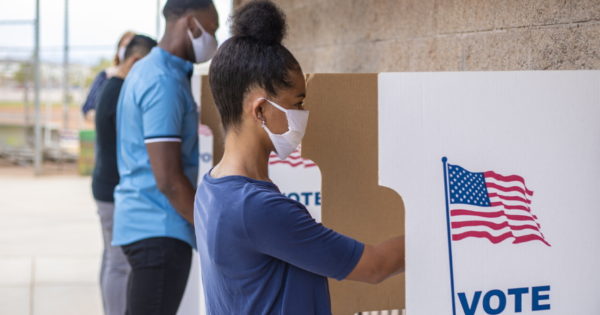
Twitter detailed updates to its civic integrity policy with the upcoming U.S. presidential election in mind.
The social network said in a blog post that its existing policy covers the most directly harmful types of content: information or false claims on how to participate in civic processes; content with the potential to intimidate or suppress participation; and false affiliation.
Twitter Safety wrote in its blog post, “In recognition of the changing circumstances of how people will vote in 2020, and in line with our commitment to protecting the integrity of the election conversation, we’re expanding this existing framework. The goal is to further protect against content that could suppress the vote and help stop the spread of harmful misinformation that could compromise the integrity of an election or other civic process.”
Starting Thursday, Sept. 17, Twitter will label or remove false or misleading information intended to undermine public confidence in an election or other civic process, including (but not limited to):
- Causing confusion about the laws and regulation of a civic process or officials and institutions executing those processes.
- Disputed claims that could undermine faith in the process, such as unverified information about election rigging, ballot tampering, vote tallying or certification of election results.
- Misleading claims about the results or outcome of a civic process, which calls for or could lead to interference with their implementation, such as claiming victory before results have been certified or inciting unlawful conduct to prevent a peaceful transfer of power or orderly succession.
The social network said that in line with its existing policies, tweets labeled under the expanded policy will have reduced visibility across its platform and will not be amplified on Twitter’s surfaces, although people following the account that sent the tweet will still be able to view and retweet it.
Jesse Lehrich, co-founder of Accountable Tech and former foreign affairs spokesperson for Hillary Clinton’s presidential campaign in 2016, expressed support for the updates in an email.
“Twitter’s new policies clearly acknowledge the harm done to our democracy when false attacks on the integrity of our elections go unchecked,” he said. “It outlines strong treatments to limit the reach and impact of such posts, to provide factual context to inoculate users and to penalize repeat offenders.”
Twitter Safety wrote, “The conversation happening on Twitter is never more important than during elections. Twitter is where people come to hear directly from elected officials and candidates for office, it’s where they come to find breaking news and, increasingly, it’s an integral source for information on when and how to vote in elections. As more people seek ways to vote and express their fundamental civil rights safely during the Covid-19 pandemic, the need for this type of information has only grown.”
However, Lehrich cautioned, “There is always a question as to whether Twitter can consistently enforce these at scale in real-time, so I don’t want to heap too much praise until we see it in action, but these appear to be significant steps forward. I hope Facebook and others follow suit.”
https://www.adweek.com/digital/twitter-ramps-up-efforts-to-protect-u-s-presidential-election/

